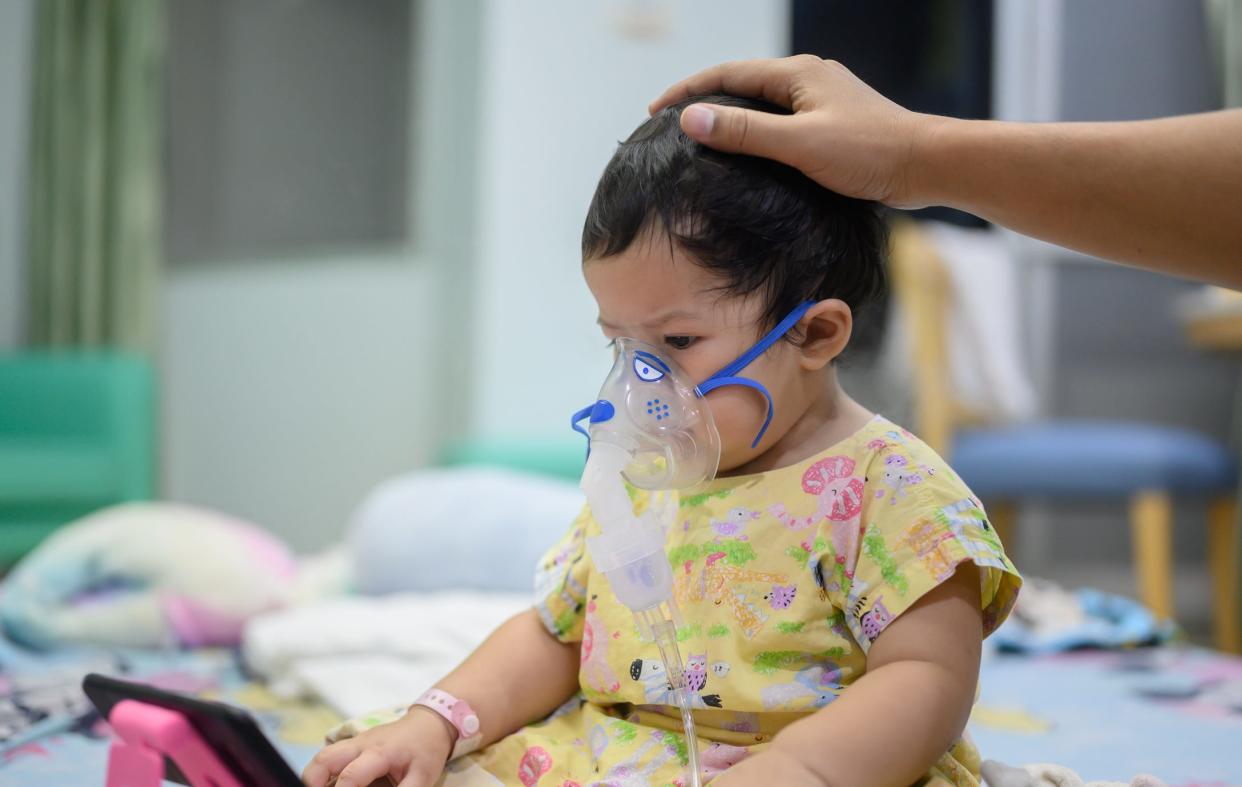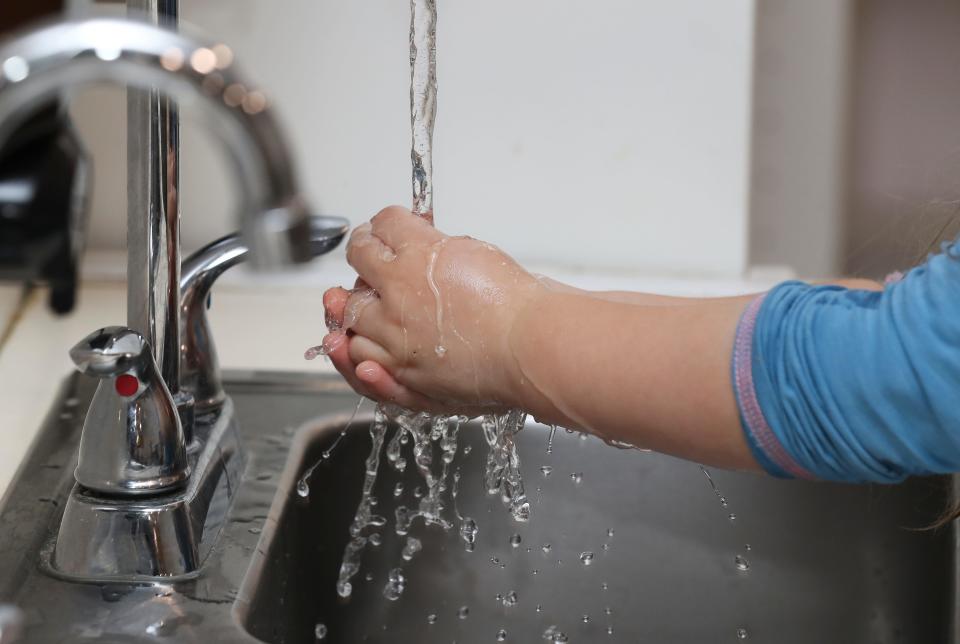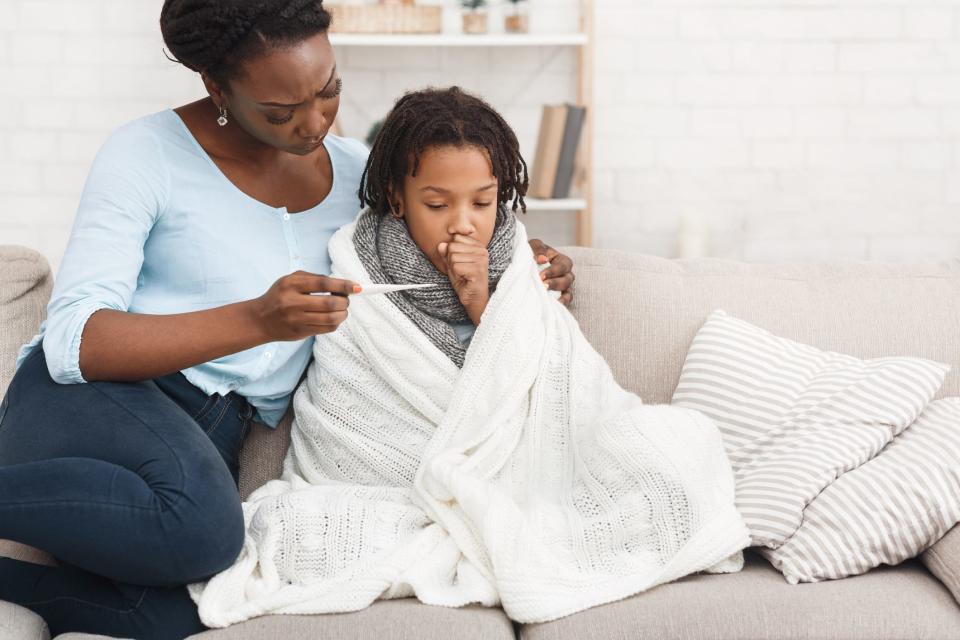Wash their hands? Get them the vaccine? What health experts say about pneumonia in kids

A pediatric pneumonia outbreak in Warren County this season raised questions about how to prevent or identify the lung infection in other kids. There was no immediate spike in the region, but we wanted to arm parents with advice from medical pros.
We asked area pediatricians and other healthcare experts, "What would you do, doc?"
Here’s who responded:
Dr. Clint Koenig, medical director for the Warren County Health District.
Erik Balster, commissioner of the Butler County General Health District.
Dr. Lara Danziger-Isakov, pediatrician and interim director of the Division of Infectious Diseases at Cincinnati Children's.
Dr. Tamara Huson, family medicine physician for Mercy Health.
Tara Jimison, director of nursing for Clermont County Public Health.
Dr. Hilary Miller-Handley, pediatric infectious disease expert affiliated with UC Health and Cincinnati Children’s.
Dr. Denise Saker, interim medical director for the Cincinnati Health Department.
We paraphrased answers for clarity.
Would you have your child wear a mask to prevent getting pneumonia now?
Balster: If my child were at a higher risk for severe illness and I were aware of a significant rise of respiratory illness within the school, then yes. However, overall hygiene plays just as significant of a role in the spread of respiratory diseases.
Saker: I would consider it for airplane travel, and certainly for visiting the elderly or immunocompromised, and when going to the hospital or health center.
Huson: Routine mask-wearing is not recommended to prevent pneumonia. However, you can consider this if you will be around others who are sick (at a doctor’s office or pharmacy) or in very crowded areas.

Would you supervise hand washing for kids under age 10, or review how to do it every so often?
Koenig: I would remind them to sing the Happy Birthday song twice and when to wash their hands.
Danziger-Isakov: Yes, periodically. Make it fun: Use songs, a timer, special soaps, towels they like.
We often hear, "you'll get sick" if you go outside in cold weather. What's the truth?
Jimison: Cold weather does not cause a cold. But, during colder months, more people gather indoors where illnesses can spread more quickly.
Balster: Cold weather has been shown to reduce the effectiveness of the immune system. However, human behavior is much more important in driving human illness. Staying inside, huddling together, forgetting to wash hands – that's the kind of behavior that can drive the spread of illness.
Is there a vaccine for pneumonia prevention for kids? If so, should my kid get it?
Danziger-Isakov: Many infections can cause pneumonia, including viruses like influenza, respiratory syncytial virus, commonly called RSV, or COVID-19, and bacteria illnesses, such as pneumococcus. Vaccines for influenza and COVID-19 are recommended for kids as young as 6 months. Prevnar, a routinely recommended vaccine for kids, protects against pneumococcus bacteria.
More: What is RSV? How is it treated? Everything you need to know about the virus
When would you take your child to a hospital emergency department or their pediatrician?
Koenig: Given the increased pneumonia cases in Warren County, parents should take their children to their primary care provider if they have a fever and cough.
Huson: Call your doctor immediately if your child has a worsening cough, fever, shortness of breath, wheezing, or lots of choking.
Danziger-Isakov: If your child is ill or unable to keep themselves hydrated, reach out to your pediatrician. They can help you decide how urgent it is to seek care and where to take your child. If you believe your child is having an emergency, call 911.
Miller-Handley: As long as your child is eating, drinking and breathing appropriately, it's OK to keep them at home. If your child has a prolonged fever (more than five days) or fever returns a few days after symptom improvement, or a persistent cough, consider seeing your pediatrician. If your child has shortness of breath, significant reduced urine output, or changes in mental function, take them to the emergency department.

Can I determine whether my child has pneumonia?
Jimison: Sometimes a physician can diagnose by signs and symptoms. Other times diagnostic tests, such as blood or spit tests or a chest x-ray may be used.
Huson: Any suspicion of pneumonia needs to be seen by a doctor.
Handley-Miller: Pneumonia presents with a significant cough and prolonged fever. Children should see their primary care provider if there is any concern about pneumonia.
What haven't we asked?
Jimison: Basic infection prevention strategies to keep you healthy include washing your hands regularly, covering your cough, cleaning and disinfecting surfaces, staying home when ill, and staying up to date on vaccinations.
Saker: Check in with your child's healthcare provider early on. Home remedies such as saline nose spray, a fever and pain reducer, drinking plenty of liquids, and using a cool mist humidifier go a long way to support the child's recovery.
This article originally appeared on Cincinnati Enquirer: Pediatric pneumonia in Ohio? How doctors say to protect kids

